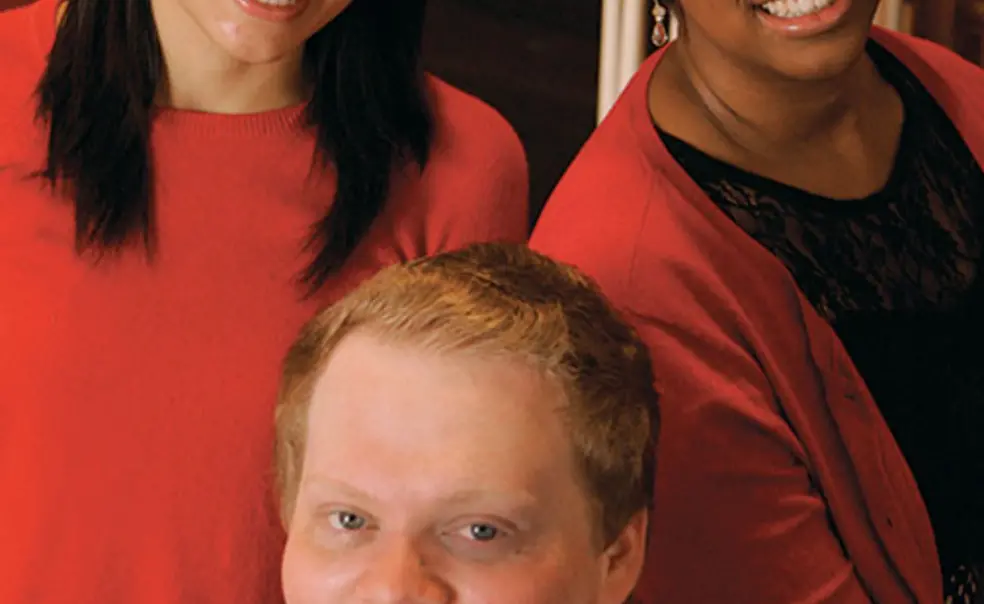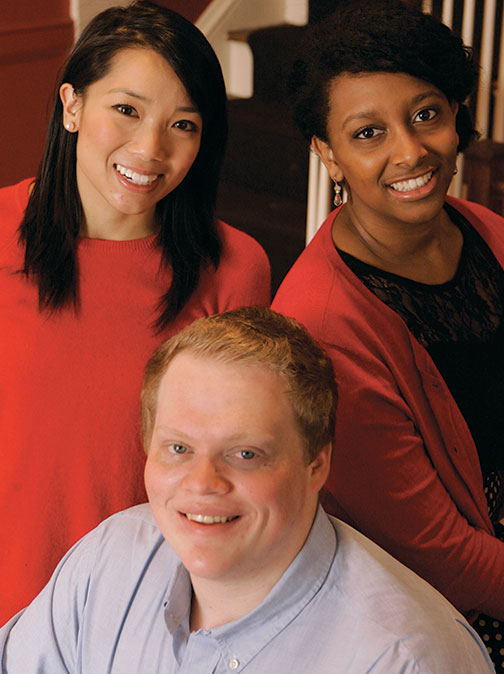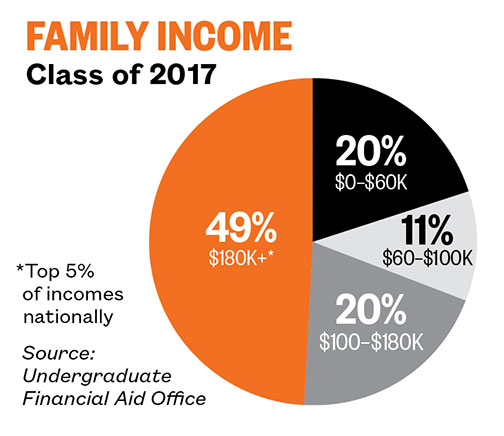Powerful Benefits
Eisgruber: University expanding efforts to attract, support low-income students
President Eisgruber ’83 was among more than 80 higher-education leaders who attended a White House conference Jan. 16 on socioeconomic diversity in higher education, pledging new initiatives to recruit and support high-achieving, low-income students.
The conference, hosted by President Barack Obama and first lady Michelle Obama ’85, offered “compelling evidence that selective higher education has especially powerful benefits for students from low-income families,” Eisgruber said. Educating those students “enables the University to serve as an engine of social mobility,” he said.
Eisgruber said he found “very persuasive” a conference theme that “students coming from low-income groups should be thought of as great talents who will succeed,” and not as students in need of special assistance.
The University cited these new initiatives:
Hiring Princeton’s first associate dean for diversity outreach last spring.
Working with the College Board to use newly available data to identify high school students from low-income backgrounds, along with test scores and grades.
Expanding Princeton’s partnership with Leadership Enterprise for a Diverse America (LEDA), a New York-based nonprofit that seeks to develop the academic and leadership potential of disadvantaged students and brings high school seniors to Princeton for summer courses and college counseling. The University has enrolled 60 LEDA alumni over the past 10 years, including 39 current students.
Seeking foundation funding to expand the summer Freshman Scholars Institute for incoming students, to include courses in science, technology, engineering, and math (STEM) fields. Among those invited to attend the institute are first-generation college students and those who attended high schools where advanced courses were limited.
Michelle Obama, raised in a working-class family in Chicago, told the White House gathering that if her brother, Craig Robinson ’83, had not been a basketball recruit at Princeton “and if I hadn’t seen that he could succeed on a campus like that, it never would have occurred to me to apply.” There are “so many kids out there just like me,” she said. She said she received valuable support in adjusting to Princeton from a summer orientation program and from the Third World Center, now called the Carl A. Fields Center.
Eisgruber said Obama’s personal story was an illustration to low-income students that they can succeed — “and to colleges that if they go out and make extra efforts to recruit students from low-income groups, they may identify and cultivate the next Michelle Obama or the next Sonia Sotomayor [’76].”
Princeton’s definition of “low-income” correlates to the top of the middle quintile of household income, based on Census Bureau figures, according to Robin Moscato, director of undergraduate financial aid. For the Class of 2017, it was $60,000; for the Class of 2018, it is $65,000.
The Class of 2001 — the last class admitted before Princeton adopted its pioneering no-loan financial-aid policy — enrolled 88 low-income students, one of every five aid students, Moscato said, while the Class of 2017 includes 254 low-income students, nearly one of every three receiving aid.
In recent years Princeton has ranked at or near the bottom of its peer institutions in the number of students receiving Pell Grants, another measure of socioeconomic diversity, though the number is growing. Moscato said that about 10.5 percent of current seniors are Pell recipients, and 14.5 percent of freshmen.
Princeton is “finding excellent students from every background, and if anything, we’re strengthening each class as they come in,” said Dean of Admission Janet Rapelye. Working to create a diverse student body is essential, she said: “Students need the relationships with each other to be able to move forward in this world.”
While the transition from high school to college can be tricky for all students, Rapelye said, “If you’re coming from a place where Princeton has not been a household name, and you’re the first person who’s going to be graduating from college, the navigation of this place takes a lot of effort.”
Farrah Bui ’14, the daughter of Vietnamese parents who settled in a small town in South Carolina, set out to help smooth that transition. Bui came to Princeton with assistance from QuestBridge, a nonprofit organization working to increase the number of low-income students at elite U.S. universities; Princeton has been enrolling more than 40 QuestBridge participants in each entering class.
Bui organized the Princeton Quest Scholars Network to support low-income students on a campus that offers “polar extremes” of financial status, as well as to mentor younger students. A committee formed by former president Shirley Tilghman a year ago to assess the campus experience of low-income students shows that the University is “being open and public about these issues,” Bui said.














No responses yet